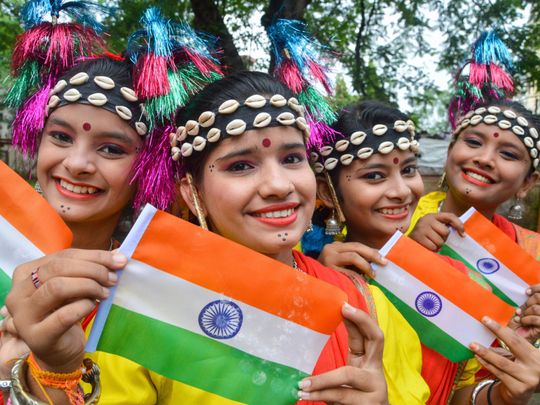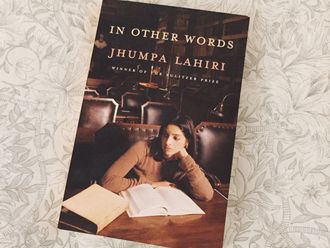
Some occasions in life get etched in your memories. The passage of time could never erase them. For me, one of them is August 15, 1947, the day India gained Independence from a foreign yoke.
For people born after 1947, celebrating Independence Day might be just an annual ritual. But for me, it has a special meaning: I was a witness to the country’s transition from bondage to freedom. The air that I breathed that morning smelt differently.
Around 72 years have elapsed, but memories of that period remain fresh in my mind.
As a school student in Aligarh, my home town in Uttar Pradesh, I was old enough to understand the meaning of Azadi (Independence) since I was born in a politically conscious family which was, however, not active in politics. But surely we supported the freedom movement led by Mahatma Gandhi and other leaders.
Like the rest of the country, we stood by Gandhi's philosophy of non-violence, peace, truth and co-existence that won him universal acclaim. The role of our freedom fighters is written in history with indelible ink.
So my initial orientation and familiarisation with the country’s political affairs, its dimensions and nuances were done right at home which often served as an informal hub of discussions among elders. A daily dose of an English daily and an Urdu newspaper further helped satiate my hunger for information.
When India awaited independence, like many others, I just couldn’t wait for it to happen. Over the years, we had got used to seeing the British Empire’s Union Jack fluttering over the district collector’s residence, the courts and other government buildings.
This inquisitive lad had many questions to ask. My elders had told me that the British flag would be taken down and the Indian tricolour would take its place when our country becomes free. Till then, we must give the Union Jack due respect.
“How else we would be deemed free?’’, I asked my father. Not wanting to entertain more queries and to not discourage me either, he showed me a brown postal envelope on the table and said, “This inscription ‘On His Majesty’s Service’ on it will be replaced by ‘On India Government Service’.” All this would change with the changeover, he told me sternly warning me not to shoot any more question.
Finally, came the much-awaited midnight hour to usher in a new and free India. All markets, office buildings, schools and colleges were illuminated mainly with earthen lamps filled with mustard oil that even the poor could afford those days.
In Delhi, necessary formalities for transfer of power were done and the Indian flag was hoisted. The country’s first prime minister, Jawaharlal Nehru, addressed the nation over the radio delivering the famous Tryst with Destiny speech.
The entire city wore a bridal look. The tricolour, India’s flag, had been freely distributed which lent colour to an otherwise dreary atmosphere. There was great rejoicing everywhere. People profusely exchanged greetings.
The morning was never as pleasant as it was on that first day of free India. Young and old were bubbling with enthusiasm, though some ignorant ones did not understand the meaning of Azadi’. The changeover hardly mattered to them.
At my school, I found myself in the vanguard of an impromptu parade owing to my short stature. After the flag hoisting by our headmaster and speeches, we were surprised with sweets which were rarely distributed in our school.
I rushed back home with a flag to hoist it on the top of our house. After all, such an occasion comes once in a lifetime. With the help of bamboo, I managed to fix it. Being a new experience for our large family, they all assembled with my grandfather unfurling it. We saluted the flag and rendered the National Anthem. With that our little but memorable event came to an end.
It remains as fresh as it was 72 years ago.
Lalit Raizada is a journalist based in India.











